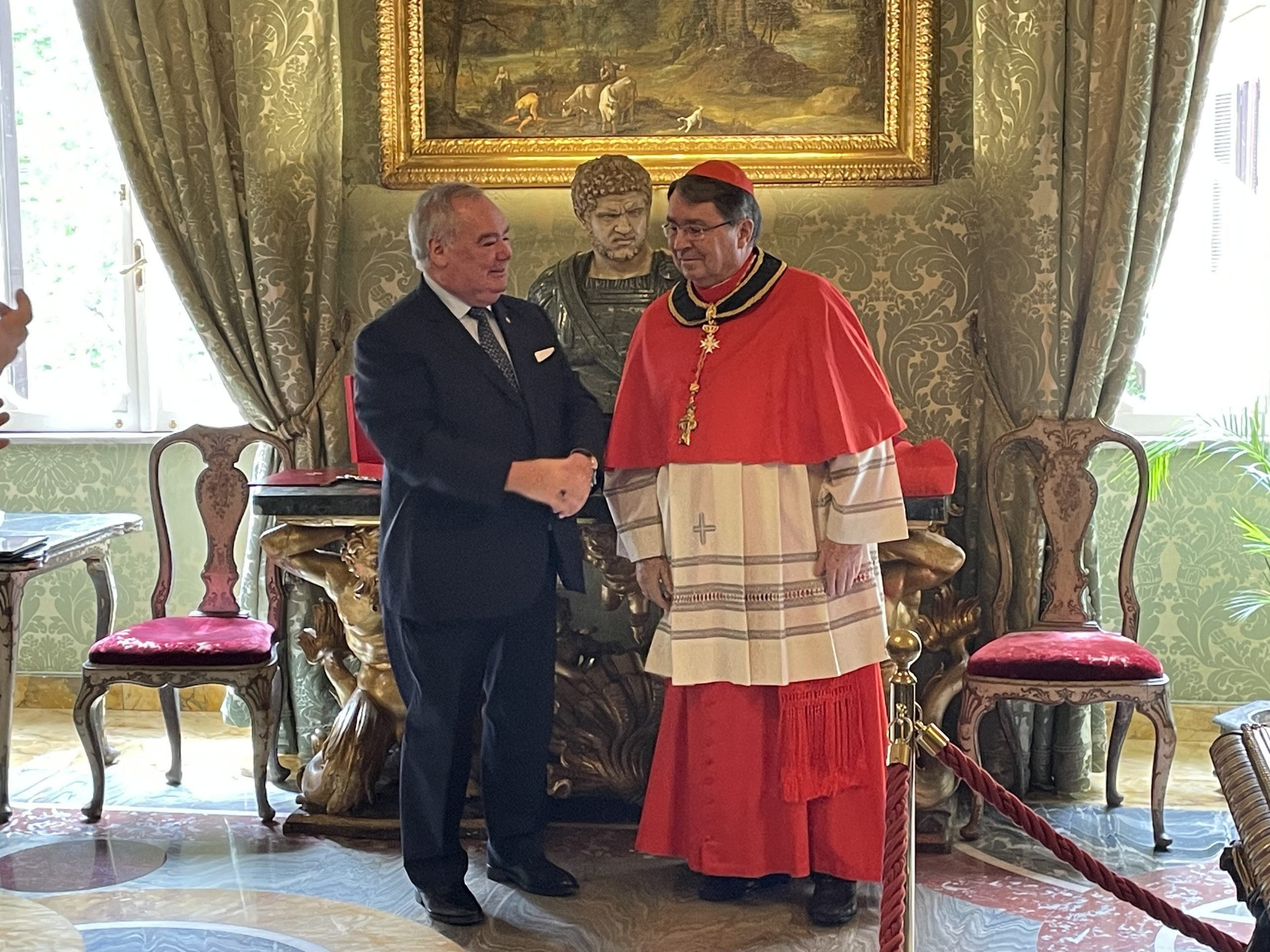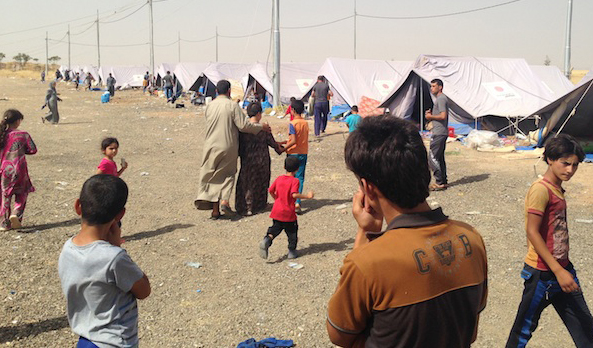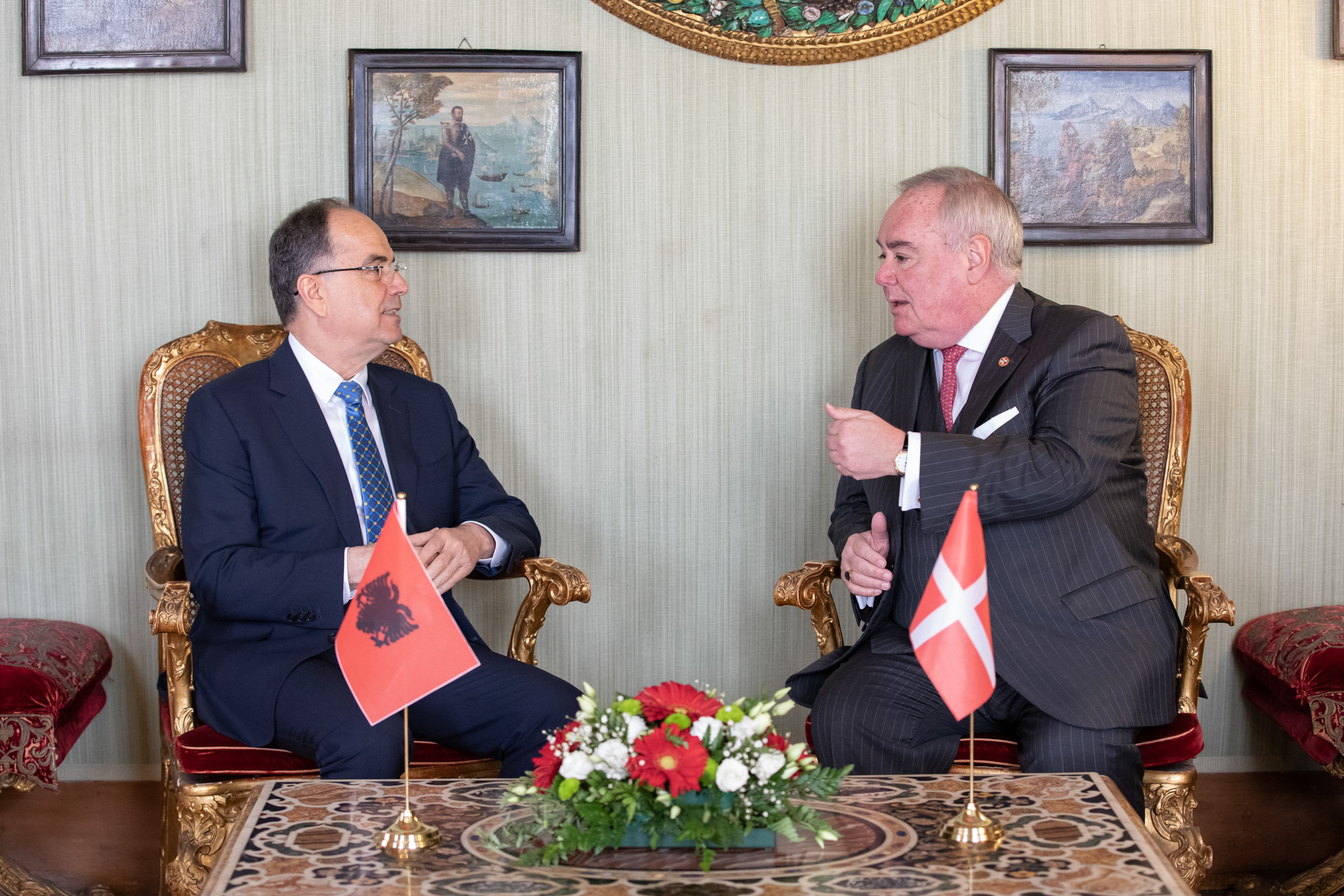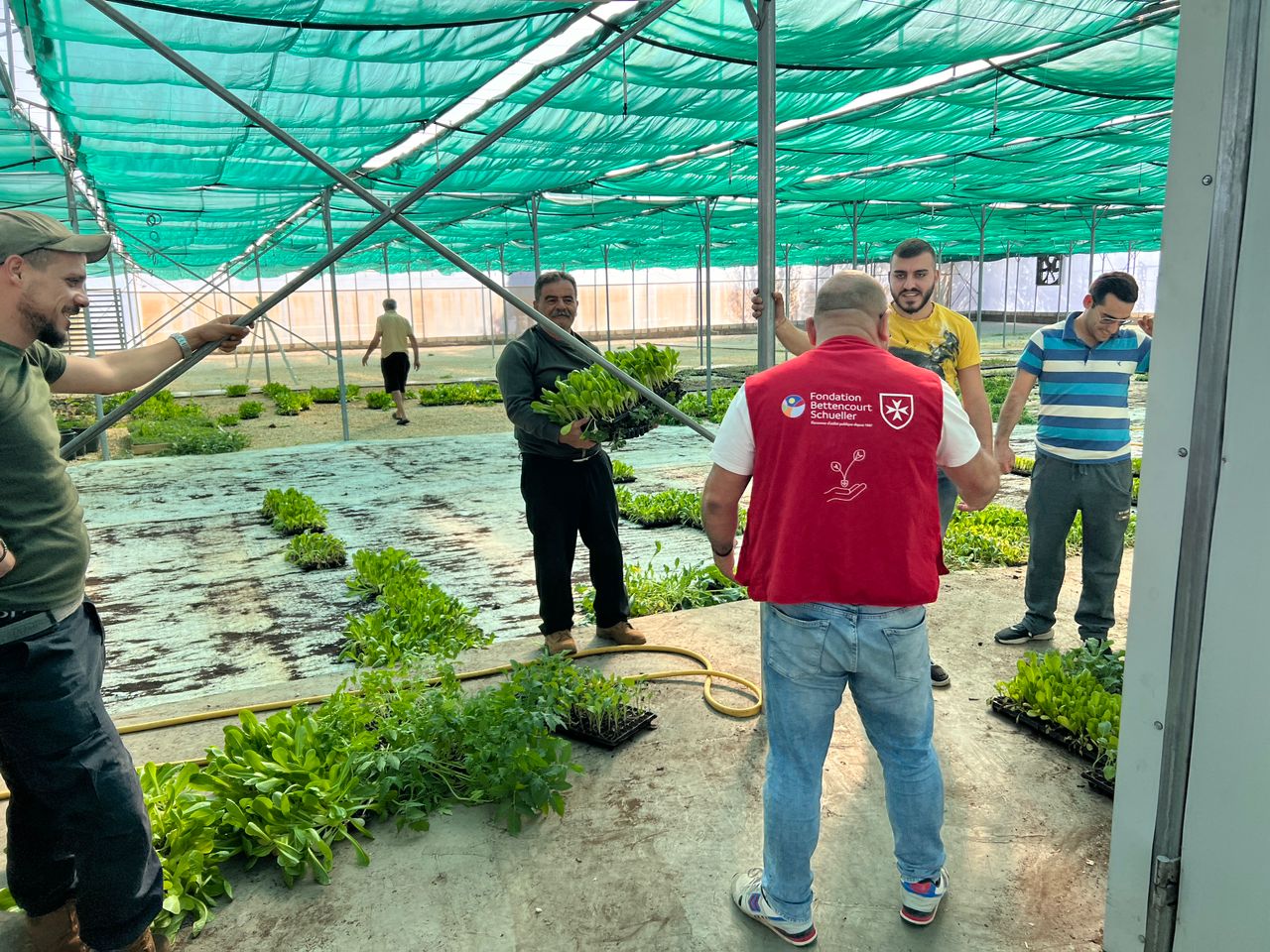Dr. Nagham H., 44 , and Dr. Sinan M., 41, fled together with their families from the city of Bakhdida (also known as Karakosh) on September 6th, following its occupation by so-called Islamic State (ISIS). They sought refuge in Erbil and now live together with other refugees and displaced families. As doctors, Nagham and Sinan felt compelled to help those who fled with them. They now work in the mobile clinic run by Malteser International and its local partner TCCF to bring health care to the displaced throughout the region.
MI: How was your life before you had to flee?
N&S: Before the ISIS invasion, life was relatively stable and safe – although we sometimes feared for our safety because of constant violence and kidnappings. Before fleeing, we both worked as general practitioners at the primary health center of family medicine in Bakhdida.
Many of the families that fled with you took shelter in schools, mosques and construction sites. Which are the biggest problems and most common diseases the displaced suffer from?
Because of the large influx of displaced persons, rent prices in the Erbil region have skyrocketed, so the living situation of displaced families is one of the biggest problems they face. They live in overcrowded buildings with inadequate sanitation, many don’t have a toilet or a place to take a bath. The health issues they face reflect this poor environment, such as gastroenteritis, respiratory tract infections, chicken pox, lice infestations, and even scabies.
What is the work in the mobile clinic like?
Our team consists of the two of us plus two medical assistants. Every day, we chose a different area to visit where the displaced families are concentrated. We then set up the clinic, which works like a mini health center, and invite the families to come and get examined. Part of the team will go out into the communities to look for any public health problems, and to try to find people who need medical or psychological help but were unable to go to the clinic. We try not to overcrowd the clinic, and give as much time as possible to each patient. Even so, our team treats about 80 to 100 patients each working day.
Children, pregnant women and elderly people are the ones who suffer the most from the situation. What are the greatest challenges they face, and how are you helping?
Children are very susceptible to poor hygiene, bad nutrition as well as bad weather, so they often suffer from infectious diarrhea, lung infections and skin allergies. The elderly are also a fragile population, and many of them already suffer from chronic diseases. As for pregnant women, they need good pre-natal care even under normal conditions; in this challenging environment, so many problems may occur – one of the most common is a urinary tract infection, and sometimes we see more serious complications as well.
What happens if one of your patients is in grave condition and needs to be hospitalized?
After stabilizing the patient’s condition, we ensure that the patient is able to reach the hospital quickly and safely. We have an ambulance on stand-by specifically for this purpose.
Do you also notice that many displaced need psychosocial support in order to overcome what they had to experience? Can you also provide assistance in these cases?
Yes, we sometimes detect emotional and psychological problems related to the traumatic events that led to their displacement. This was most prominent in the first weeks after they arrived here. We received training by a mental health expert on how to deal with these situations and so are able to offer psychological support and treatment as well. Seeing that we are displaced just as they are and coming from the same background, the patients feel safe talking to us about these issues.
Do you feel that having a shared background with your patients as displaced persons allows you to do a better job in general?
Definitely! It is positive for both sides: For us, we are more sympathetic towards their suffering from having been in the same situations; for the patients, they gain confidence from their interaction with us and feel understood.
With the arrival of winter, thousands of displaced families will struggle with freezing temperatures, and with it new health problems will arise. What needs to be done to protect them against the cold?
In the coming months, the suffering of the displaced will increase and their health problems will compound. Organizations can help alleviate the crisis by offering good low-cost shelters that can protect them, such as caravans or by sharing the costs of renting apartments or homes with the displaced.
What gives you strength to do this work, and what do you hope for the future?
These difficult times strengthen us. In spite of losing our houses and our possessions, we get the chance to prove ourselves by good work. Through our humanitarian deeds, we are able to find joy amid these tragic days. We wish for us, for our families and for our fellow displaced to return peacefully to our towns and go on with our life, but that will be probably difficult without an internationally secured area. Otherwise, resettlement in the Kurdistan region is another choice, or immigration and resettlement in other countries. We wish for our home country peace and progress, so it can become a democratic society, and for its population to live with dignity.
Photo: TCCF










